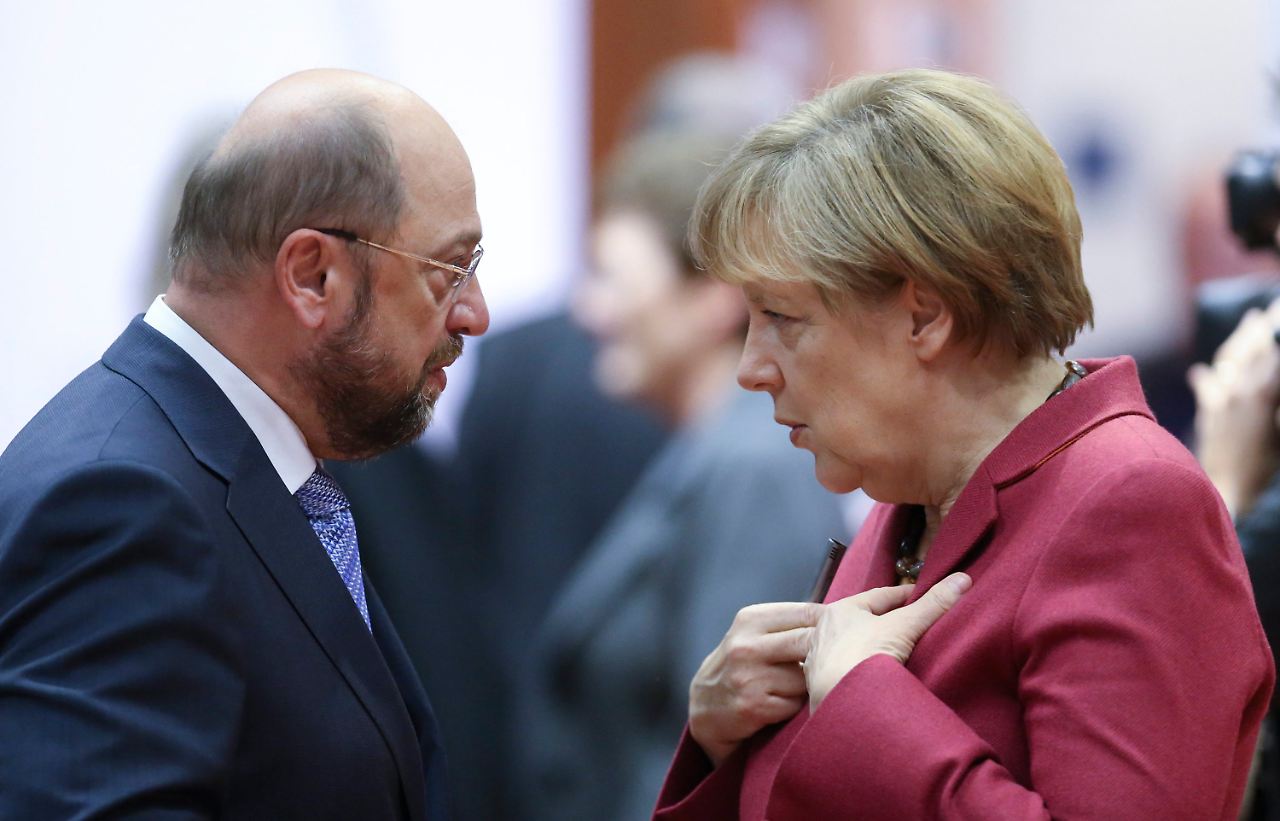
SECOND DATE
German coalition exploratory talks end ahead of crucial decision

The initial phase of talks between Chancellor Angela Merkel’s conservative bloc and Martin Schultz’s Social Democrats (SPD) end today—the parties will now decide whether to proceed to formal coalition negotiations.
Although both parties have agreed to a media blackout while talks are underway, reports suggest both have agreed to drop the 2020 carbon reduction target, establish national high-speed internet infrastructure by 2025 and to implement skilled migration targets. Mr Schultz has described having “a good discussion” on European Union reform—a potentially contentious subject as he supports the so-called ‘United States of Europe’, a concept by which Brussels would control much of the foreign and domestic policies of EU member-states. Chancellor Merkel has outright rejected the idea.
SPD members will decide whether to proceed with formal talks on January 21. That vote will likely depend on whether rank and file members are satisfied that the party will have greater influence in a new government than in the previous grand coalition. Given the enormous pressure on Ms Merkel to form a government—therefore avoiding another election where populists could make further gains—this appears more likely.
UNHAPPY NEW YEAR
Pakistan’s security leaders meet over American aid freeze

Islamabad’s parliamentary security committee will meet with high-level military leaders today in the wake of the suspension of $1.9 billion in US military aid on January 4—including $1 billion in military equipment.
The meeting follows accusations of “lies and deceit” from Donald Trump after Islamabad refused to hand over an accused terrorist last month. The suspect, a member of the Taliban-linked Haqqani network, was wanted by US intelligence services to glean information about other American hostages held in the region.
Cutting aid to Pakistan is a risky strategy. The country is a less financially and diplomatically costly entry point for US forces into Afghanistan compared to Central Asia, where Russian influence remains supreme. However, the Trump administration is unlikely to lift the suspension unless Pakistan shows greater cooperation in counter-terrorism operations, such as handing over militants and increasing intelligence sharing.
Pulling all aid out of Pakistan, as Mr Trump mooted on January 6, also risks turning Pakistan’s military towards China. Indeed, burgeoning Sino-Pakistani trade ties are a substantial feature of the region; an extension into the military sphere would be problematic for Washington.
ALL BARK, NO BITE
Venezuelan talks continue despite previous failures

Talks between the Venezuelan government and opposition resume today in the Dominican Republic, with the goal to end the nation’s often violent political stand-off paramount.
Negotiations held last month failed to make headway on issues such as the release of political prisoners and the allowance of foreign aid, which may harm President Nicolas Maduro’s nationalist message. It is likely these roadblocks will likely be at the centre of today’s discussion.
Venezuela’s inflation climbed to 2,600% last year and, despite Maduro’s party clinching victory in recent mayoral elections, such economic strife leaves the regime in a poor position. Many are suspicious that the ongoing talks are a government tactic to stall real change by sowing disagreement within the opposition, thereby relieving political pressure.
Any conciliation made by the government would undermine much of their ideological strength—an unlikely development given Maduro faces re-election in December. Therefore, expect this new round of talks to achieve little.
Delve deeper: Venezuela: on the path to authoritarian rule under Maduro

